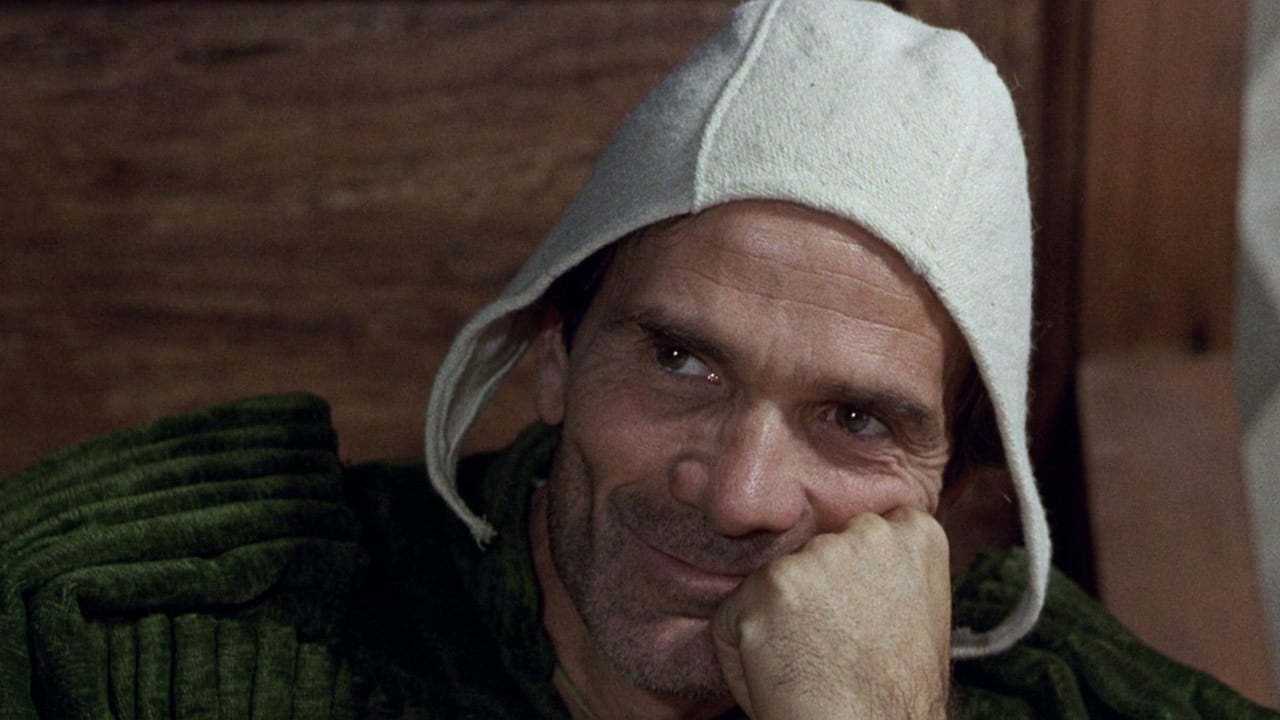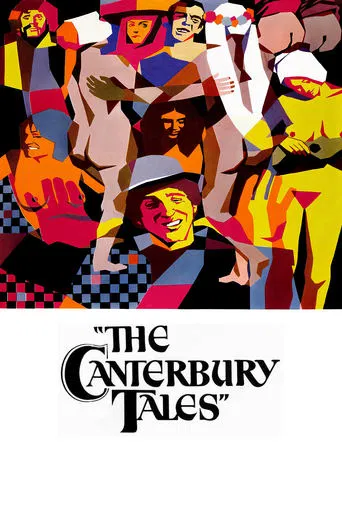

It's a mild crowd pleaser for people who are exhausted by blockbusters.
... View MoreBlending excellent reporting and strong storytelling, this is a disturbing film truly stranger than fiction
... View MoreThe film may be flawed, but its message is not.
... View MoreThe movie is wonderful and true, an act of love in all its contradictions and complexity
... View MoreThe last scene of Pasolini's wondrous Canterbury Tales emphasizes the narrative as an end in itself - "here end the Canterbury tales, told only for the pleasure of telling them" - and this reflects the film's sense of joyous tumble, one narrative often almost subliminally moving into another. But there's also something relentless about it, a feeling of people lacking in any real agency over themselves, as puppets of their own desires, as tools of those whose desires are stronger than their own, of the corrupt authorities, of the angels and devils which the film occasionally depicts as walking among the living. There's carnal overdrive and naturalistic nudity galore, and of course the film carries an erotic charge, but one that leads time and again to humiliation, misery, betrayal, pain, or death, and ultimately even beyond that, to one of the most tangible visions of hell ever put on film. The film is a triumph not so much of casting in the usual sense, but of human placement - an astonishing canvas of flesh and faces, suggesting people torn directly from the Medieval earth (the matchless English-language soundtrack, if you choose that option, adds considerably to this sense, when not evoking Monty Python, not that I'm saying that's a bad thing); and whether or not the various settings are historically accurate, they likewise feel discovered rather than created. At the same time, there's no doubt we're watching a work of extreme stylization, and not just in the episode that happily channels Charlie Chaplin; characters generally seem to be addressing the camera, or the void beyond it, more than each other. Which leads back to the movie's sense of desperation, that few of its possessed characters expects more from their compulsive screwing than the most fleeting of releases. The classification of the film as part of a "trilogy of life" seems, to say the least, ironic.
... View MoreThis is the second in Pasolini's series of setting classic bawdy tales to film In this case, he selected eight of Chaucer's Canterbury Tales, including the infamous miller's tale and the incident with the red hot poker kiss The tales revolve around a group of pilgrims who are journeying to the shrine of Saint Thomas a Becket of Canterbury The trip is so boring that they begin telling each other stories that soon get obscene, gory and very sexy Pasolini adds another motif to his visualization by placing Chaucer himself into the movie, periodically cutting to him writing at his desk...Pasolini inserts pleasure and amusement at social customs, especially marriage Some of the stories are funny, others are deadly serious The scene where a young man is burned for making love to another of his own sex, for example, is chilling...In fact, Pasolini's using non professional actors, is more in keeping with the tone of the original than the usual romanticized versions...
... View MoreI'm rather bemused by some of the negative comments above. This film - in my humble opinion - is one of the greatest ever made, and my personal favourite of all P.P. Pasolini's. Pasolini brings life to Chaucer in a way my poor teachers at school could never have dared. In the film, Pasolini casts himself as Chaucer; daydreaming, laughing at his own tales, being berated by his wife. And therein lies the clue to this film. It's not just an interpretation of the Canterbury Tales, it's a portrayal of its author. For all claims of "smut" (see above), I can honestly say that your imagination must be pretty dull not to laugh at certain earthy, dream-like scenes. Absolutely non of the scenes in this movie can be branded as bad-taste. They're absolutely accurate. Pasolini showed deep understanding of the English psyche throughout; the examples are too numerous to mention. If you're looking for an explanation of The Canterbury Tales, you won't find it in this film. But if you're looking for how to go about interpreting it for yourself, you'll find no better. This movie is one that I will keep, and you can bet my kids are going to see it when they get a little older too.
... View MoreThis, even though it lacks a bit the wit and spirit of IL DECAMERON, which was funnier, it still manages to satisfy as you reach the end. Pasolini's perverted humor as well as some of his usual actors are here. There's full nudity, both male and female. Maybe here the erotic element is more intense so its less humorous, I am not sure. I suppose it will satisfy those who like Pasolini's humour like, say, IL DECAMERON. The copy I saw had awful dubbing - Italian language- maybe it's bad sychronisation, or something else... As far as I am concerned it is worth it alone for this special, absurd, perverted, surrealistic last scene, taking place in hell. It rulez! Some others scenes are awesome too! And of course there'e Pasolini evident dislike of church/religious dogmas.If you're not easily offended and like old films, specially European ones, give it a try, IL DECAMERON as well.
... View More